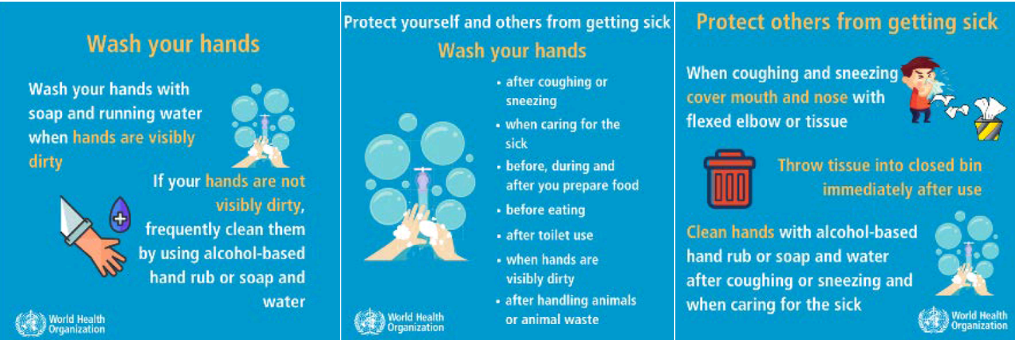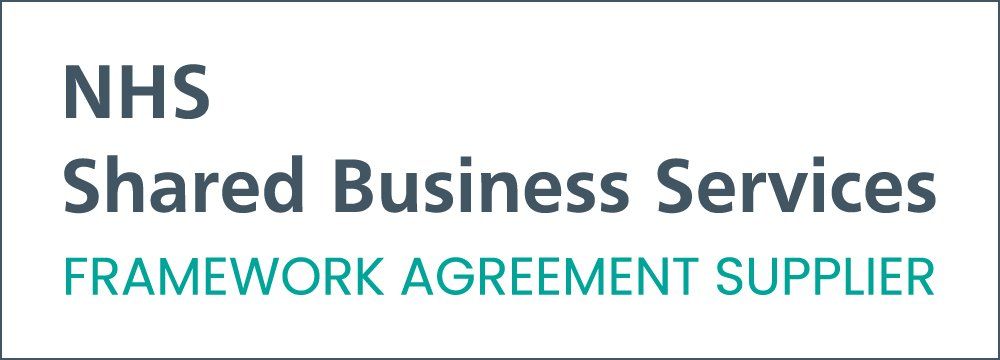Pandemic Planning Health and Safety Policy
Lightning Fire Safety Systems Ltd as a business and its’ staff have all been classified as key workers by the Home Office in a statement at 12.00 on Monday, March 23rd 2020.
James Brokenshire, Minister of State for Security confirmed “Security and fire safety personnel can play a vital role at this time of national challenge. People working in these sectors who are essential to national infrastructure are ‘Key Workers’ for the purposes of the Government’s guidance on Covid-19”.
Later on, this additional statement was made by Mr Brokenshire; “Key Worker status has been extended to all fire safety personnel actively working to improve public fire safety”.
The Health and Safety at Work Act 1974 imposes a statutory duty on employers to ensure, insofar as is reasonably practicable, the health, safety and welfare of their employees whilst at work. This duty also extends to others who may be affected by the activities of Lightning Fire Safety Systems Ltd (LFSSL).
Aims and Commitments
LFSSL will:
Provide a safe and healthy working environment and will not compromise the health and safety of any individual whilst having direct control of Pandemic circumstances.
Provide the necessary training, advice and resources to all its staff to allow for the safe performance of day to day operations whilst operating in a Pandemic Scenario
Comply, as far as reasonably practicable, with relevant health and safety legislation and Government body advices regarding Pandemics
Integrity – acting ethically ensuring compliance, professionalism and transparency
Responsibility – we all own problems, accept accountability and provide solutions
Pandemic Planning (including COVID-19 / Coronavirus)
Introduction:
Viral Pandemics, including COVID-19 and other strains of Influenza, arehighly infectious viral illnessesthat have the capacity to spread very rapidly. A pandemic occurs when a new viral infection strain emerges and spreads, because people have no natural resistance to it. The scale, severity and impact of a viral pandemic are difficult to predict. What is known is that pandemics affect entire countries with up to 50% of the population developing the illness. Past pandemics have spread globally in two, and sometimes three, waves over a period of months.
Any viral pandemic, as confirmed by the World Health Organization, has the potential to seriously affect LFSSLs operations, its employees and their families. With such a high percentage of the population potentially affected, absenteeism could disrupt public transportation systems, utility services, health provision and services, communications and services provided by our suppliers. It is also anticipated that schools would be closed to prevent the spread of infection.
A viral pandemic may therefore affect our staffing in four principal ways:
Staff may themselves become infected, which is likely to lead to an unprecedented level of sickness absence
Staff may have fears of being infected whilst at work and of passing on infection to their families and friends
Stress levels will be higher than normal because of pressures on staffing
Staff with caring responsibilities may be adversely affected by local measures, such as closure of schools. As a result, staff may have to stay at home to care for dependent children. In other cases, staff may be caring for partners and other dependants, such as older relatives
Viral Pandemics have the potential to affect all businesses and employers in a region, including those providing essential services on which this business relies.
LFSSL will use the World Health Organization pandemic alert phases to trigger organisational actions once evidence emerges of increased human-to-human transmission.
Our focus will be on:-
Stress levels will be higher than normal because of pressures on staffing
Producing action plans when needed that are specific to each of the organisation’s locations
Maintaining health and hygiene measures and standards
Planning for a Pandemic:
When it starts to become obvious that local facilities and services are not functioning satisfactorily, decisions will be made at Company level to enable a corporate response.
The planned response will be to:
Maintain awareness of global developments and advices given
Undertake awareness training/give advice across the organisation
Brief senior management on control measures
Ensure external stakeholders are involved/made aware, e.g. suppliers, insurers, customers
Maximise the use of video conferencing where available
Review all overseas travel to infected areas and countries
Pandemic Response:
The company will seek to reduce the overall and specific risks to staff by taking appropriate infection control actions.
LFSSL will distribute information regarding monitoring transmission interventions, infection control, communications, identifying vulnerable workers, and business and personal travel.
Pandemic Recovery
Unlike other disaster contingency planning, recovery interventions in the case of a pandemic, need to take into account the likelihood of follow-on waves which may place the organisation in a critical response phase for many weeks, possibly months.
Because of the ever-changing conditions that apply to a Pandemic scenario, company guidelines and safe working procedures will be constantly reviewed to allow for flexibility and adaptability.
Guidelines and Safe Working Procedures in response to a Pandemic
Transmission Interventions – Infection Control:
LFSSL will seek to reduce the overall risks to staff by taking appropriate infection control actions. It is absolutely essential that the following control measures are instigated at the earliest opportunity. Basic health protection advice will be issued to all staff.
Avoid close contact at work and outside (face-to-face/large gatherings)
Stay at home when sick
Cover mouth and nose when sneezing / coughing
Immediately bin any tissues used when sneezing / coughing
Clean hands thoroughly immediately - with hot water and soap for a minimum of 20 seconds / if unavailable use hand sanitizer
Avoid touching eyes, nose and mouth
Stop visitors to your site
Stop your staff visiting sites of known or possible infection
Increase site cleaning. This must include all- door handles / door push panels / telephones / hand-rails / light switches / other communal areas and items / printers and photocopiers
Have sufficient quantities of alcohol based hand-gel / sanitising wipes / alcohol based cleaning agents
Instigate site contingency plan - should staff be required to stay at home to look after children because of schools closures or relatives and others who succumb to infection*
*This should be instigated immediately family members and close friends of staff become infected, whether the staff member succumbs personally, remains at work, or not. These steps may be too late, however, where incubation / carriers of the virus are already be on site.
Initially policies for Time Off for Dependents or Holiday should be used for time off. Greater flexibility will be required where deaths impact on personnel. In all cases LFSSL will advice / confirm staff conditions of pay.
Goods, services and functions of LFSSL that are potentially essential to its operations and business are defined below:
Carry out business planning i.e. which functions/services can be carried out by other locations/sites (if necessary)
Develop an order of succession i.e. plan which functions/services can be carried out by personnel other than those normally given the task, and train non-essential back up staff to perform essential tasks
Purchase/stockpile essential supplies, materials and equipment
Ensure maintenance plans are up to date to guarantee that all equipment essential to the business’s operation, is capable of sustained operation
Encourage a high take-up of annual flu jab vaccinations amongst employees at higher risk
Put in place policies to enable flexible working in the event of a pandemic for key staff
Ensure the adequate supplies of infection control materials (e.g. alcohol-based hand cleaners, wipes and cleaning materials) are held in readiness
Ensure steps are taken to heighten awareness of LFSSLs infection control procedures, particularly covering hand hygiene
Provide advice for all workers on personal, workplace and family protection as the pandemic develops
Prepare employee support services, including grief counselling and psychiatric care
Implications for other H&S & HR Policies:
The Pandemic Policy and associated arrangements will only be invoked during a Pandemic outbreak and, at that time, will override existing policies with Board approval.
The policy is developed in the context of a duty to provide our customers with a level of service, whilst maintaining the health, safety and welfare of our staff. The impact of a pandemic may be significant and consequently there may be a time when existing working arrangements will be insufficient and new arrangements covering some areas will have to be invoked, for example:
Flexible working / alteration to work patterns
Redeployment
Overtime and unsocial hours
Disruption to travel infrastructure
Additional staffing provision
Sickness absence
Annual leave – cancellation / refusal
Compassionate leave
Carers / dependents leave
Study leave – cancellation / suspension
Support to Staff
Staff who refuse to attend work
Staff at high risk
Pay arrangements
Instructions on these will be sent out individually by .
At no time will any health & safety procedures be suspended. Personnel at work will be expected to continue to abide by all company rules, regulations and working procedures at all times.
It may be necessary to suspend any work in HR that is not required by law. It is anticipated that any disciplinary investigations and hearings will be suspended until after the end of the recovery period of the pandemic. However, the powers of suspension will be retained in the event of serious disciplinary events taking place.
Across all services there will be a need to ensure that appropriately trained staff are available in the relevant location(s) to ensure continuity of service. It is hoped that personnel will work closely with LFSSL to ensure service continues to its customers.
Because of the ever changing conditions that apply to a Pandemic scenario, this Policy, Guidelines and Safe Working Procedures will be constantly reviewed to allow for flexibility and adaptability.
COVID-19 Symptoms:
The most significant symptoms are the sudden onset of:
fever
cough or shortness of breath
tightness of the chest
Other symptoms may include:
headache
tiredness
chills
aching muscles
sore throat
runny nose
sneezing
loss of appetite
Infectious period: Most people may be infectious soon after they develop symptoms and will continue to spread the virus for up to fourteen days (adults). People become less infectious as symptoms subside, and are considered no longer infectious once symptoms are gone.
If you develop symptoms while not at work:
Stay at home (self-isolate) and do not go to work until you are fully recovered
Contact the National Health Service advice line (telephone 111 in UK) for advice and an initial assessment of symptoms in the first instance
Inform your manager to let them know you are ill
REMEMBER: CATCH IT! BIN IT! KILL IT!



